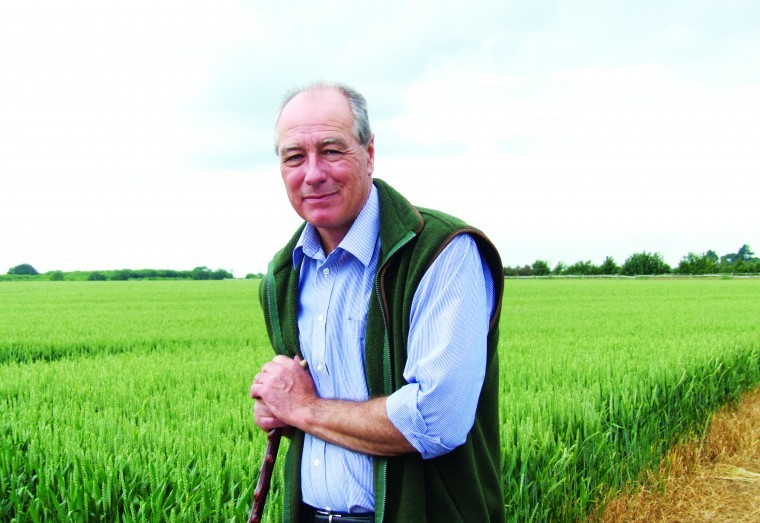Well what an incredible harvest for a whole mix of reasons, not least that it is still to be completed in parts of Kent on the 23 September.
I could go on and cite the 75% – which was largely the wheat and oilseed rape which was cut by mid August – that was dry off the combine and in the case of wheat yielded very well. Or the 25% left that has become a veritable war of attrition with the elements made worse by the large proportion of spring crops which are a result of the single farm payment’s three crop rule and environmental focus areas.
Very wet crops have been cut as time has slipped away and quality has been lost with sprouted grain taking away hagberg falling numbers and beans for human consumption have been stained. Then there is the rain with 125 millimetres falling in August and more than 75mm in September. At times it appears the soils are not at field capacity and water quickly drains in but then you can look at a different soil type and it is waterlogged with standing water taking days to soak in.
As an example when you are driving a combine on a field and the combine sinks in a wet patch faster than header auto contour can lift up, you are either going too fast (not) or should not be out there (probably) except rain is on the horizon and on that particular day subsequently 13 mm fell in less than 20 minutes. It was a struggle to get enough traction to get tracked combines back out of the gate onto the road where we then had to sweep the road.
Not long after that the River Beult at Pluckley had water over its banks and on the field still in early September. Or on top of the Downs where driving a tracked combine down a bank to cut a valley field on a dry day was fine. But 24 hours later the combine needed towing up the same slope to get out of the valley. There is so much to love about farming and its challenges.
So having made you smile and realise that everyone has struggled this year what is there to say about those spring crop yields? Well spring barley ranged from near seven tonnes a hectare to 3.8t/ha, spring beans 4.5t/ha to 3.5t/ha and winter beans a respectable 4.6t/ha. At today’s prices all that hard work amounts to a waste of time. Still I could have grown peas!
So where are we going forward for next year’s crops? It is tempting just to say in a mess but there is better weather forecast and while a three week Indian summer may be a bit of a mirage at least there appears to be a break for the better.
Oilseed rape ranges from mid August sowing with two to three true leaves to early September at cotyledons emerged, certainly not short of moisture and perhaps struggling with water logging on heavy ground. No doubt less area drilled than planned but if it is in and up then there is a crop to work with.
As for drilling wheat, well there is plenty of that to do and a challenge it will certainly be. On top of the North Downs we have 600 acres in and up with slugs and herbicide treatments being the concern. It seemed right to drill it but rolling was almost impossible at the time and certainly subsequently so we will be relying on slug pellets as the residual herbicides will go on as soon as the land will travel as the absolute priority. I do not want to be spraying off our few early wheat crops because of blackgrass problems. We will get the Downs land drilled eventually but the Weald and North Kent marshes will need some while to drain and then dry so that Indian summer will be just the ticket if it arrives and holds.
I cannot pass up the opportunity to comment on the changing political landscape with the new Labour opposition front bench. Not unlike our wheat drilling programme, a mess. I often think our politicians are a bit detached from reality with only Friday constituency meetings to meet real people and keep their feet on the ground. But in the light of what is going on with the Labour party I am beginning to wonder if even that is true. We have had some interesting Labour secretaries of state for DEFRA inflicted on us in the past and appointing the vegan Kerry McCarthy to the shadow post might be Jeremy Corbyn’s idea of a joke. But we should assume that is not the case and that she is the best person he can find for the post. That probably tells us all we need to know about Labour and farming at the present time.




